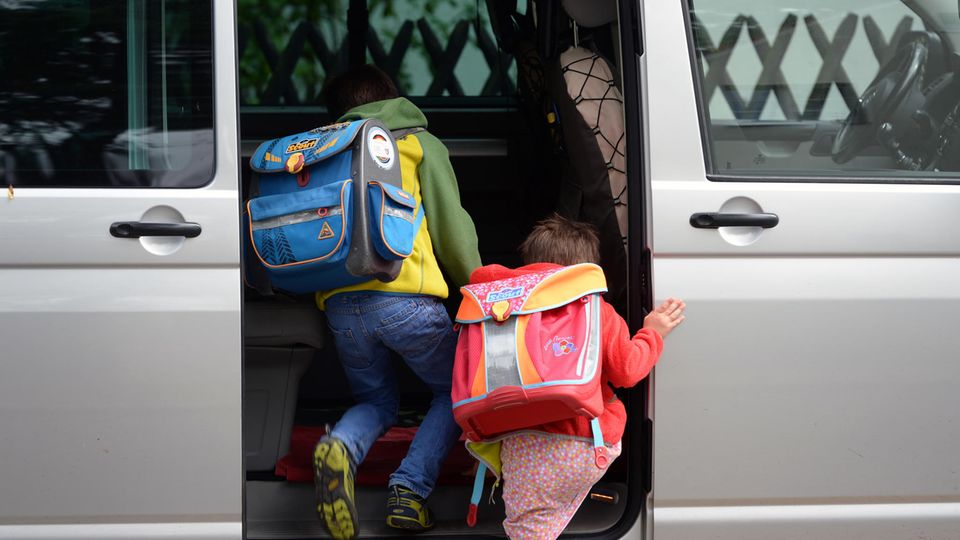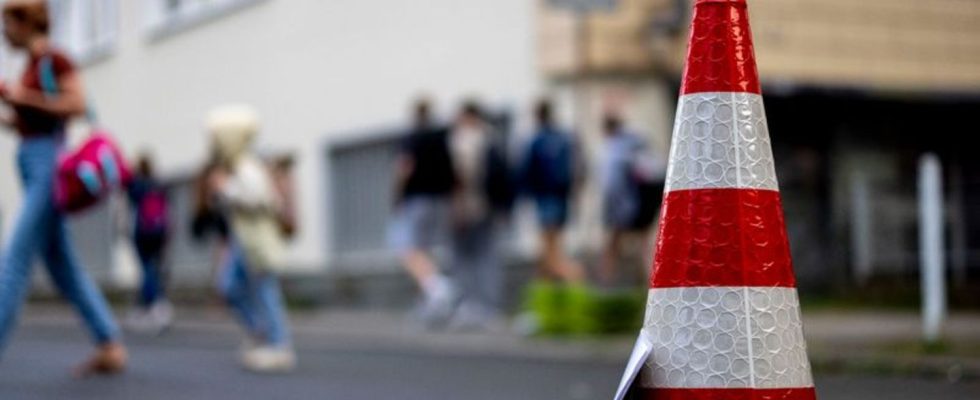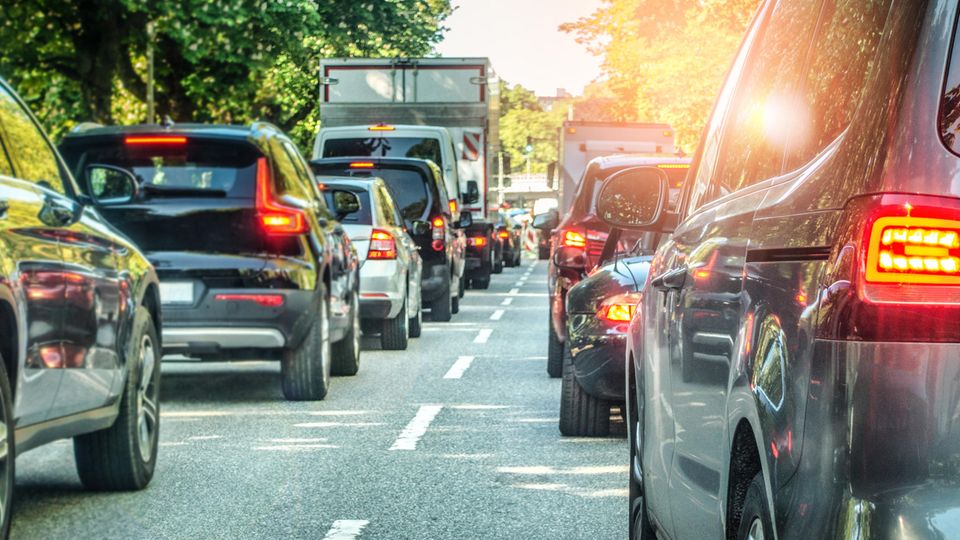Road safety
Fight against parent taxis: In the first federal state, municipalities are allowed to close streets in front of schools
Pylons stand on the street at the Bardeleben School. photo
© Christoph Reichwein/dpa
So-called parent taxis cause dangerous situations in front of some schools every morning. The first federal state is now venturing out with a regulation to limit the risks.
Municipalities in North Rhine-Westphalia (NRW) can temporarily close roads near schools to vehicles in order to prevent dangerous situations caused by so-called parent taxis or heavy through traffic. A spokesman for the state Ministry of Transport said on Monday that NRW was the first federal state to create such an opportunity for municipalities that went beyond temporary pilot projects.
The decree is intended to regulate the “negative side effects” of parent taxis
“Especially at primary schools, it is often observed that school children are brought to or picked up from the main entrance in motor vehicles. This can lead to critical traffic situations if the drop-off and pick-up traffic with its negative side effects (traffic jams, searching for parking space, parking and turning maneuvers , maneuvering, etc.) affects schoolchildren who come to school on foot or by bicycle. The establishment of a school street therefore primarily serves the traffic safety of schoolchildren,” the decree describes the problem. Due to the lack of direct reference to individuals – it is aimed at the municipalities in North Rhine-Westphalia – the paper has not been published with general access star however, before.
Train instead of car
These are the most environmentally friendly commuter cities
The state ministry’s decree of January 26, 2024 provides a legally secure basis so that municipalities can take preventive action without having to prove a specific danger situation, explained the ministry spokesman. There is no need to wait for a change to the nationwide road traffic regulations (StVO).
The state ministry explains that so-called school streets could be set up using traffic signs with an additional sign for the period of closure. But school streets could also be set up with mobile barrier elements such as a barrier.
Children’s charity welcomes decree
“In addition to the through traffic, critical situations regularly arise in front of some schools, especially at the beginning and end of classes, also due to the intensive drop-off and pick-up traffic,” said NRW Transport Minister Oliver Krischer (Greens) to the “Rheinische Post”. The aim of the decree is to create the possibility of temporary school streets in a legally secure manner. Residents are of course exempt from the restrictions. Several traffic tests, such as in Essen, have already shown that critical situations can be defused by setting up safety zones for 30 or 45 minutes at the start and end of classes.

The German Children’s Fund (DKHW), for example, considers the new decree to be very welcome. “With this decree, we are taking a very big step not only in North Rhine-Westphalia, but it is a milestone towards the nationwide spread of school streets and thus more safety on school routes. This signal is now coming from North Rhine-Westphalia: School streets are coming, first in North Rhine-Westphalia, soon throughout Germany.”
There are currently no concrete plans to implement similar decrees or regulations in other federal states. North Rhine-Westphalia is considered a pioneer nationwide with its approach.
Sources: Decree of the North Rhine-Westphalia Ministry of Transport, “Rheinische Post”, DKHWwith DPA



